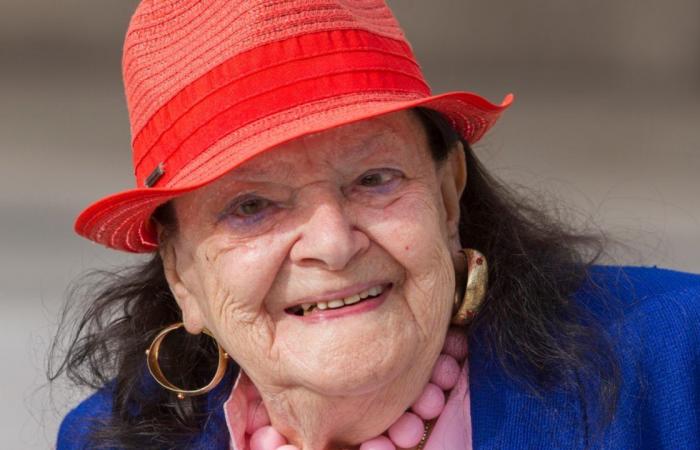“What do you want to know?” Last summer, shortly after her 100th birthday, Faye Cukier was ready. Ready to tell about her life. What it was like when, as a Jew, she had to leave Cologne, the city of her birth, due to the terror of the National Socialists.
Cukier spent the rest of her life in the parents’ home of the Syngogen community in Cologne. She died in the nursing home on Monday. She spent her childhood around eight kilometers to the east, on the other side of the Rhine, in the district of Mühlheim.
Father Jakob ran a metal business, the daughter grew up in sheltered circumstances – until Adolf Hitler and his henchmen came to power in 1933. The pressure on Jews steadily increased. Mother Sophie urged them to flee in the fall of 1938, even before the anti-Semitic riots of »Reichskristallnacht«.
On the way home Faye had been mobbed by young people and finally stones thrown at her. “After that, there was no stopping my mother – she screamed, ‘I don’t want to stay in this country anymore!’”
The family first ended up in Antwerp, Belgium. Parents’ relatives lived here. At the same time it seemed possible to travel from there to England, the USA or Canada. But with each passing day in the long queue in front of the US consulate, it became clearer that they had the worst cards possible.
The parents only had Polish citizenship – and as Jews and non-Germans they became third-class refugees: Nobody wanted to grant these people permanent refuge.
In May 1940, German troops invaded Belgium. The Cukiers fled to the Ostend ferry port. There to find out once again that there was no escape to England for them. Via French Dunkirk, where they barely survived the bomber raids of the German Luftwaffe, they finally went back to Antwerp – mostly on foot.
Paradoxically, the situation in the city eased briefly under German occupation. The teenager Faye rose to become the family’s sole breadwinner. As a »courtier« she sold valuable diamond jewellery. At that time, the industry was firmly in Jewish hands. That’s how it is to this day. With the difference that back then, business was conducted on the open street and women wore bracelets, necklaces or rings on their bodies.
The intermediaries were allowed to pocket the profits in cash directly. Faye made a plus of 15,000 Belgian francs at her first hearing.
Faye spoke of incredible luck when she reported how she and her parents survived persecution in World War II and deportation to the Auschwitz concentration camp, which ended in the village of Hoeselt, 30 kilometers from the German border. Or about the night between rabbit hutches in a basement, with which she and her parents escaped the pursuers in Brussels. The Belgian capital was also the last stop on their flight. Here the family experienced the liberation by the Allies.
After that, it seems, Faye made up for the life the Nazis stole from her. She moved to the USA and started a family there. Of course, the connections to her beloved hometown did not break: she owned a small apartment there.
Her memoirs entitled »Fleeing the Swastika« (»Escape from the Swastika«) were published in German in 2012; a documentary film entitled “Kölsches Mädchen – Jewish Man” traces the stages of her escape.
“What do you want to know?” Faye Cukier was involved in eyewitness talks at schools and in 2014 for the Diocesan Caritas Association of the Archdiocese of Cologne well into old age. “We remember Faye Cukier as a strong, courageous and humorous woman and feel with her family,” said Caritas Association spokesman Markus Harmann.
»In the film she says: ‘It was an agonizing decision, a heartbreaking sacrifice, to leave Cologne and everything we loved.’ 75 years after her own escape, she gave us an impressive demonstration of what it means to leave home must.”
Read more about this in our print edition on Thursday.


